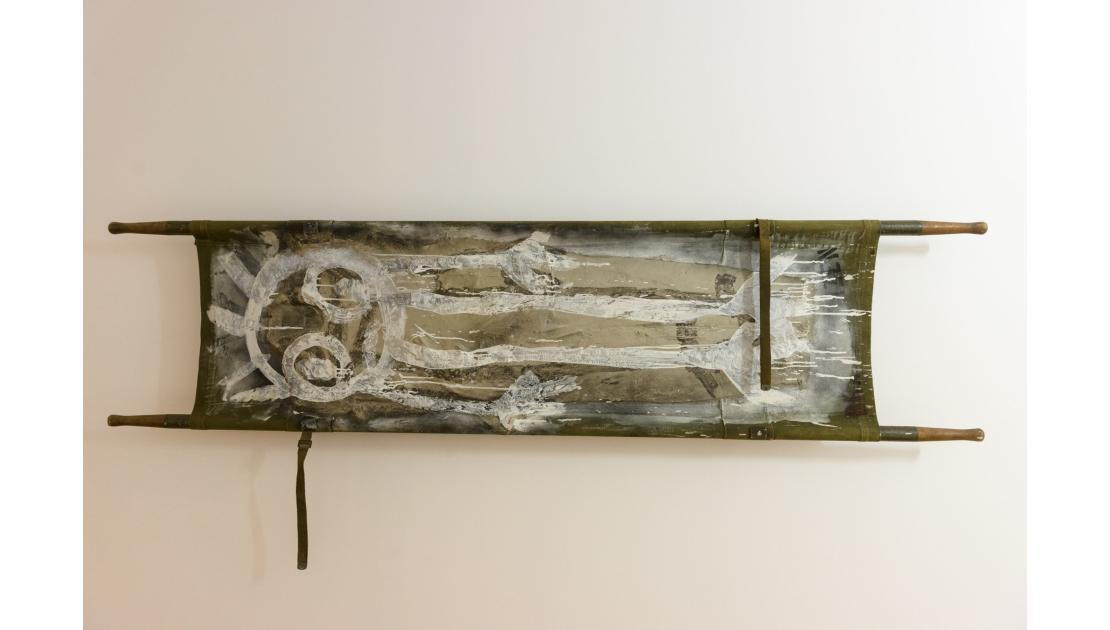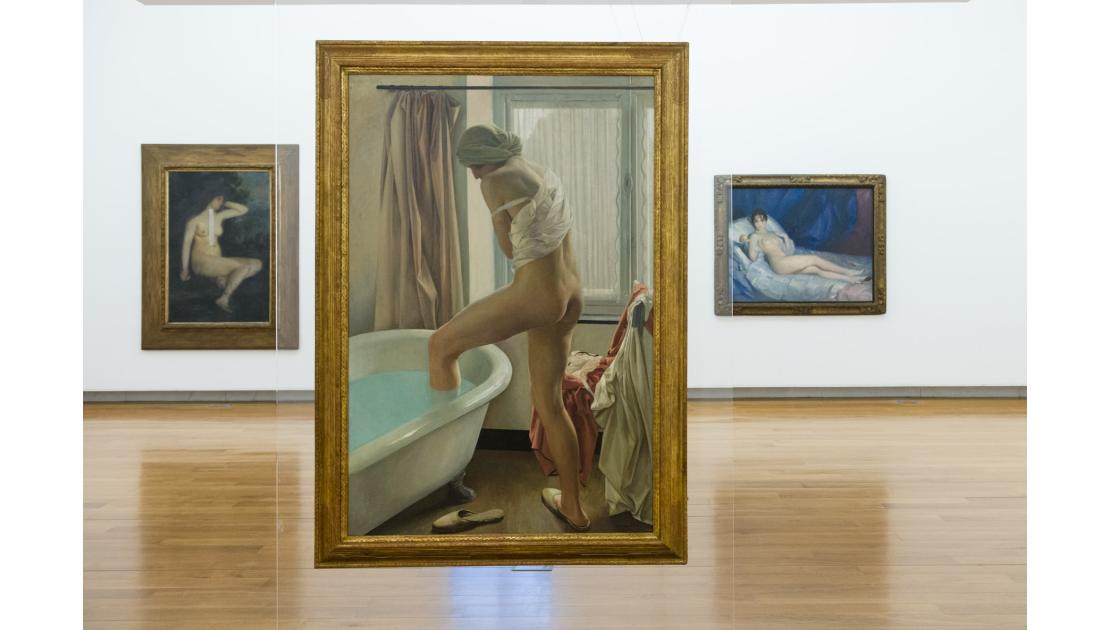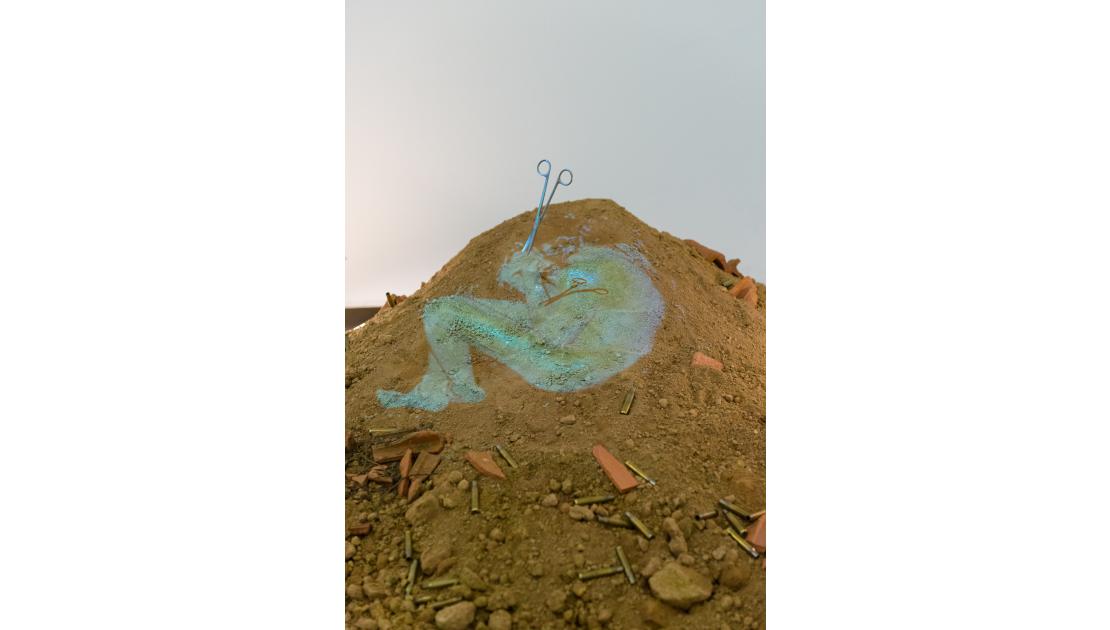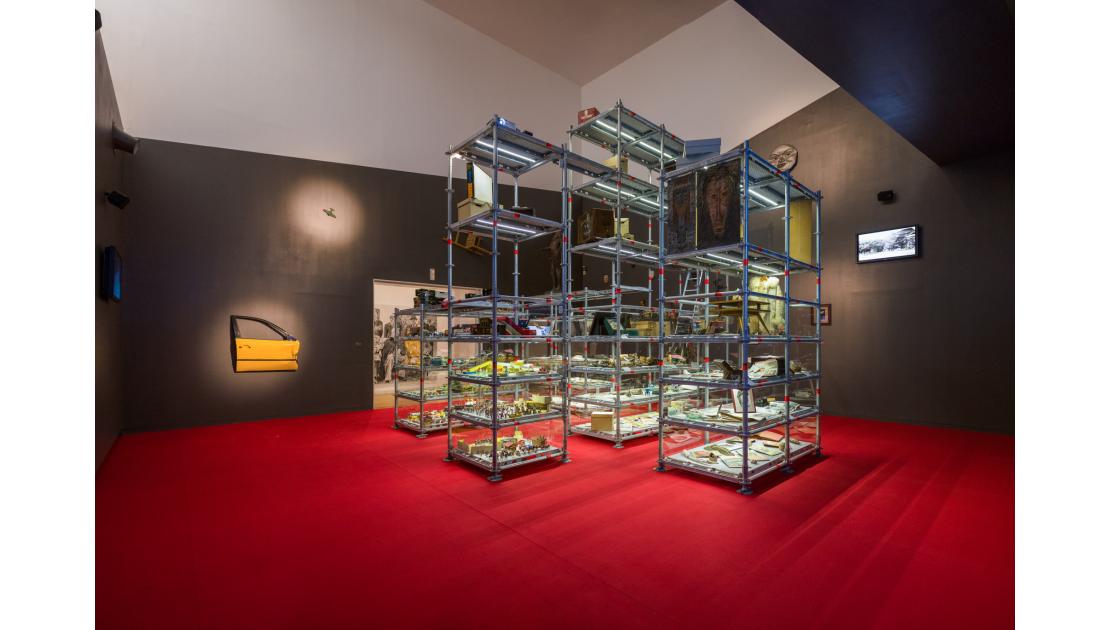FRANCESC TORRES. CREBAS
As a member of the first generation of installation artists that emerged in the American art scene in early years of the nineteen-seventies, Francesc Torres (Barcelona, Spain, 1948) is widely known as one of the historic points of reference in multimedia installation art. His personal and artistic experience led him to split his time between Barcelona and New York, and in the last twenty years he has also established strong ties with Galicia, where he has spent several seasons on the Costa da Morte.
Torres takes a tenacious approach to analysing the most notable events of the tumultuous twentieth century and its repercussions on the present. His work is translated into a skilful poetic exercise and heavy critical reflection on contemporary society, captured over the course of five decades of intense artistic production.
Crebas is a term that belongs to the Costa da Morte lexicon. It is used to refer to objects that the tide washes up on shore, as a result of a shipwreck or other circumstances. Under this title, the exhibition shows a selection of pieces dated from 1976 to 2019 that synthesise the essence of Torres’s work. It is a fresh opportunity to reconsider his work from other perspectives, to observe the connections between the various phases of his career as an artist, which explores historic, philosophical, political, and anthropological aspects, expressed through different types of media such as installation, photography, drawing, and sculpture. A series of unpublished pieces that are directly related to Galicia have been included here. They tie back to his first conceptual pieces of the seventies, articulated in perfect dialogue with posterior work, in particular with multimedia installation, created as a mechanism for complex narration, so often the product of an exhaustive research process.
Of particular note is one of his historic pieces, Construction of the Matrix, which was presented on the occasion of the Venice Biennale of 1976, and La campana hermética espacio para una antropología intransferible, a monumental installation in the style of a Wunderkammer, or cabinet of curiosities, revealed here as the genesis and lifeblood of an entire life of creation. Thousands of objects with tremendous symbolism which, like crebas, attest to personal experiences, historical events, and reiterations of the memory.
Deep within Francesc Torres’s work, there is also a reflexive act of his role as an artist, and he maintains that art is, first and foremost, a pattern of human behavior used to comprehend the world and our very existence, an action that gives it meaning. Thus, art is less of a profession and more of a radical, primal need. This feeling of Torres’s, accentuated under the influence of the Galician finis terrae that gave rise to this exhibit, justifies his words: ‘When it comes to the sea, there is no race, no market, no profession in the classic sense of the word. There is just a drive and response to being alive.’





